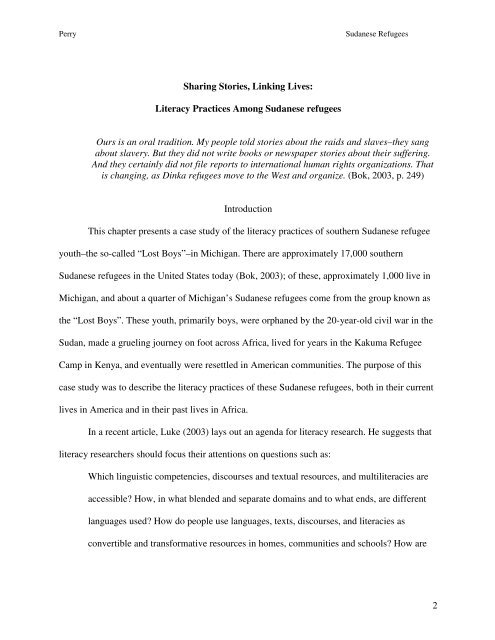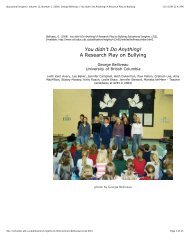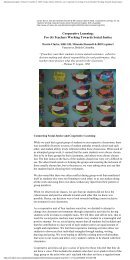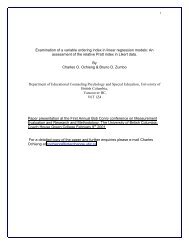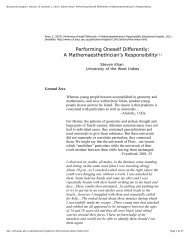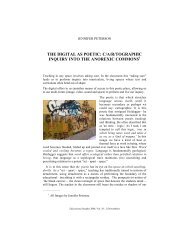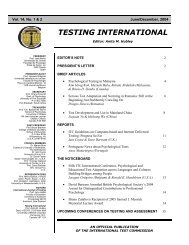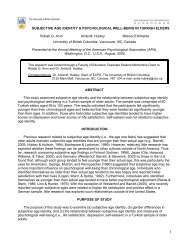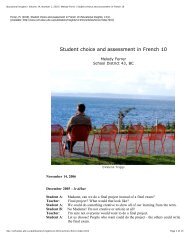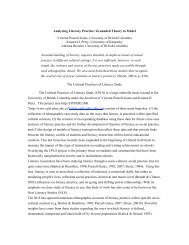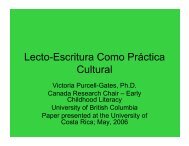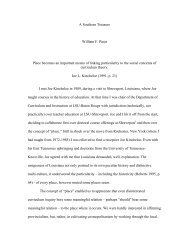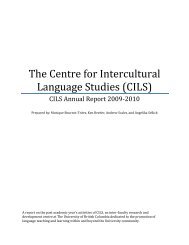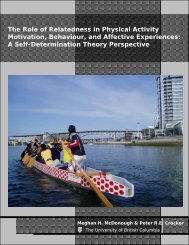Sharing Stories, Linking Lives: Literacy Practices Among ... - CPLS
Sharing Stories, Linking Lives: Literacy Practices Among ... - CPLS
Sharing Stories, Linking Lives: Literacy Practices Among ... - CPLS
You also want an ePaper? Increase the reach of your titles
YUMPU automatically turns print PDFs into web optimized ePapers that Google loves.
Perry Sudanese Refugees<br />
<strong>Sharing</strong> <strong>Stories</strong>, <strong>Linking</strong> <strong>Lives</strong>:<br />
<strong>Literacy</strong> <strong>Practices</strong> <strong>Among</strong> Sudanese refugees<br />
Ours is an oral tradition. My people told stories about the raids and slaves–they sang<br />
about slavery. But they did not write books or newspaper stories about their suffering.<br />
And they certainly did not file reports to international human rights organizations. That<br />
is changing, as Dinka refugees move to the West and organize. (Bok, 2003, p. 249)<br />
Introduction<br />
This chapter presents a case study of the literacy practices of southern Sudanese refugee<br />
youth–the so-called “Lost Boys”–in Michigan. There are approximately 17,000 southern<br />
Sudanese refugees in the United States today (Bok, 2003); of these, approximately 1,000 live in<br />
Michigan, and about a quarter of Michigan’s Sudanese refugees come from the group known as<br />
the “Lost Boys”. These youth, primarily boys, were orphaned by the 20-year-old civil war in the<br />
Sudan, made a grueling journey on foot across Africa, lived for years in the Kakuma Refugee<br />
Camp in Kenya, and eventually were resettled in American communities. The purpose of this<br />
case study was to describe the literacy practices of these Sudanese refugees, both in their current<br />
lives in America and in their past lives in Africa.<br />
In a recent article, Luke (2003) lays out an agenda for literacy research. He suggests that<br />
literacy researchers should focus their attentions on questions such as:<br />
Which linguistic competencies, discourses and textual resources, and multiliteracies are<br />
accessible? How, in what blended and separate domains and to what ends, are different<br />
languages used? How do people use languages, texts, discourses, and literacies as<br />
convertible and transformative resources in homes, communities and schools? How are<br />
2


